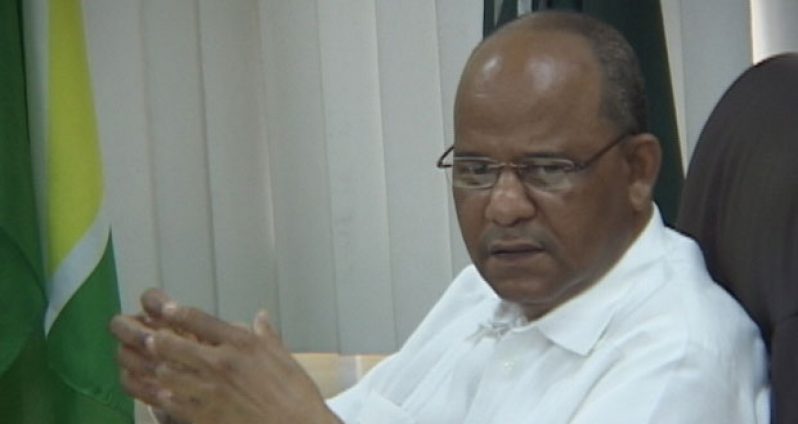THE People’s Progressive Party/Civic (PPP/C) has denounced what it called the “arbitrary” and “politically” motivated action by the Government to repossess farm lands leased to farmers in Region Five (Mahaica/Berbice).Speaking at the Party’s weekly press conference on Monday, PPP/C General Secretary Clement Rohee said, “The move to the court to revoke leases through the MMA/ADA follows the publication of notices in the local media, giving notice of the cancellation of all the leases granted to farmers.”
No notices were served to the farmers personally. They were notified by the media, which Rohee described as a “slap in their faces and a mark of disrespect towards them.”
According to Rohee, almost immediately following publication of the notice in the newspapers, political activists began invading and occupying farm lands already under cultivation; and that at high cost to farmers. The ‘invaders’ began staking out plots of land for themselves with a view to occupying those permanently, thus displacing farmers who had legally occupied the lands before.
He said the arbitrary action executed through the MMA/ADA is wrongful and shortsighted, and will deprive Guyanese farmers of their legitimate right to do their work.
“The MMA/ADA’s actions will prove disastrous for Region Five in particular, and will deal another blow to the agricultural sector in Guyana,” the PPP/C General Secretary contended, while asserting that the Government’s policy appears aimed at displacing legitimate farmers who produce, and to discriminate in favour of the politically-connected, who own hundreds of acres but prefer to rent in order to produce.
His contention is that the Government of Guyana (GoG) must take urgent steps to request support from the Regional Development Fund, “which forms part of the special regime for disadvantaged countries, regions and sectors”.
In addition, the GoG, he said, must press for the further opening up of CARICOM countries’ markets for increased quantities of Guyana’s rice. Moreover, the GoG must press for imposition of the Common External Tariff (CET) and quantitative restrictions of a temporary nature on extra-regional rice imports, having regard to the “threat to domestic producers of live or directly competitive products from extra-regional sources”.
Rohee said the current administration is obligated to find solutions for the rice industry utilizing the Revised Treaty of Chaguaramas — the regional inter-governmental agreement to facilitate the free movement of goods and services between member states of the Caribbean Community.
(Navendra Seoraj)



.jpg)









